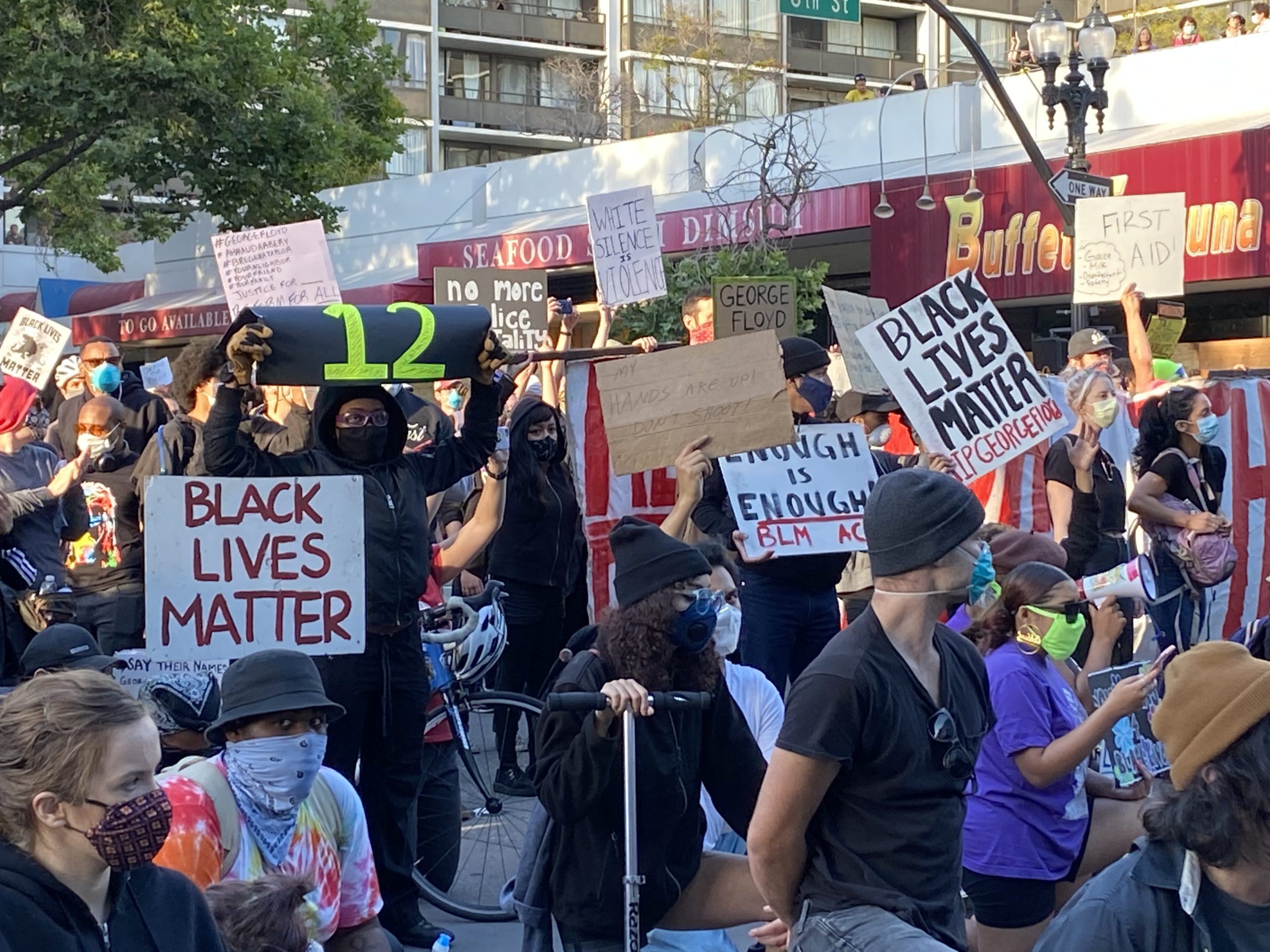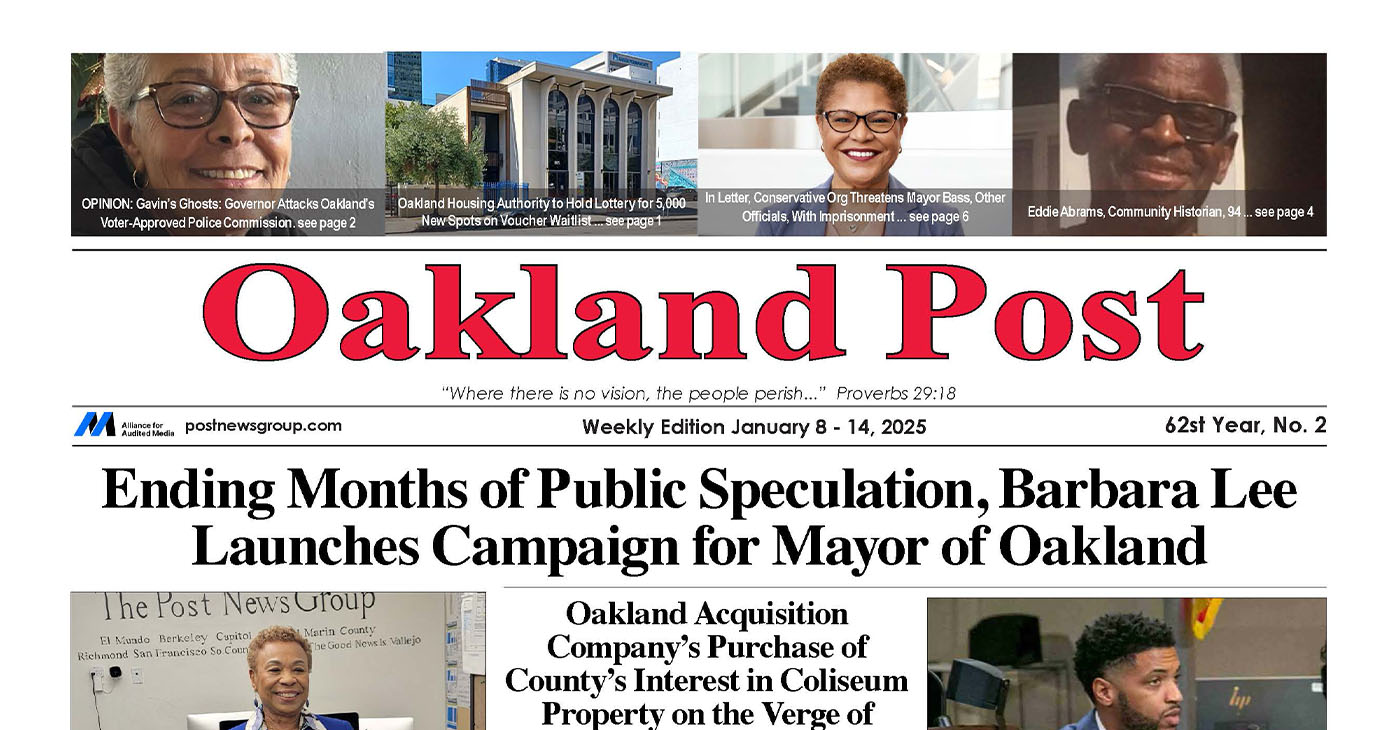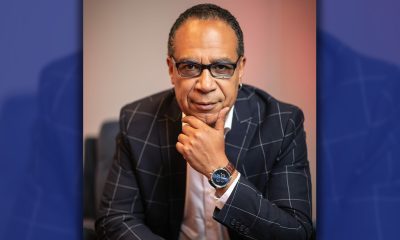Activism
Civil Rights Leaders Demand Results in George Floyd Justice in Policing Act Negotiations
The Democrat-led House has passed the bill twice over the last 12 months, yet, as the deadline passed, the bill continues to be trapped in a holding pattern in the Senate.

Civil Rights leaders from across the nation are calling for Congress to pass the George Floyd Justice in Policing Act.
In a joint statement released late June 2021, leaders of several Civil Rights agencies demanded that Congress produce a final version of the bill that will pass the House and Senate by the end of June more than one year after George Floyd’s murder and just days following Derek Chauvin’s sentencing.
The Democrat-led House has passed the bill twice over the last 12 months, yet, as the deadline passed, the bill continues to be trapped in a holding pattern in the Senate.
“We collectively demand that Congress honor its commitment to produce a final bill that can pass the House and Senate before the end of June and ensure a strong George Floyd Justice in Policing Act is passed before the August recess,” they said.
“The nation desperately needs a transformation of policing policies and practices — from inner cities to suburban neighborhoods to rural counties. The only way to begin this process is with federal legislation that sets meaningful standards and removes legal impediments to holding officers accountable for unconstitutional policing practices. The George Floyd Justice in Policing Act was conceived and created with a focus on accountability and contains provisions overwhelmingly supported by the American people. This vital civil rights legislation is long overdue.”
Below is some chronology on the George Floyd Justice in Policing Act as it has played out in Congress over the last year.
On June 8, 2020, Congresswoman Karen Bass introduced H.R. 7120, the George Floyd Justice in Policing Act of 2020. The House approved the bill with unanimous support of Democrats and three Republicans by a 236-181 vote.
The bill included provisions to overhaul qualified immunity for law enforcement, prohibitions on racial profiling on the part of law enforcement and a ban on no-knock warrants in federal drug cases. It would ban chokeholds at the federal level—classifying them as a civil rights violation and would establish a national registry of police misconduct maintained by the Department of Justice.
On June 17, 2020, the bill failed to pass the Senate procedural vote needed to advance in the then Republican-controlled Senate.
South Carolina Senator Tim Scott (representing several Republican Senators) proposed alternative legislation that would diminish the use of chokeholds but wouldn’t ban them and called for increased federal reporting requirements for use of force and no-knock warrants.
Senate Democrats responded by rejecting the Senate’s alternative legislation citing its narrow scope and failure to address racial inequality.
On Feb. 24, 2021, Bass reintroduced the bill as H.R. 1280 the George Floyd Justice in Policing Act of 2021. For the second time, the bill passed the House on March 3, 2021, in a near party-line vote of 220-212.
Today, the George Floyd Justice in Policing Act has yet to gain traction in the Senate, although bipartisan discussions between Bass, Scott and Sen. Cory Booker continue.
According to Bass the House-Senate stalemate centers on the two most contentious parts of the bill: (1) qualified immunity (which essentially would allow a citizen to sue a police officer for brutality or worse) and (2) Section 242, which lowers the standard needed to prosecute police officer.
In a March 2021 interview with NPR, when asked if she’d be willing to compromise. these two salient parts of the bill, Bass responded with a no.
Activism
Oakland Post: Week of January 8 – 14, 2025
The printed Weekly Edition of the Oakland Post: Week of January 8 – 14, 2025

To enlarge your view of this issue, use the slider, magnifying glass icon or full page icon in the lower right corner of the browser window.
Activism
Barbara Lee Launches Campaign for Mayor of Oakland
“At this critical moment, we must not be a city divided, but a community united,” she Lee. “If elected I will bring my hands-on leadership, new ideas and decades of experience in identifying billions in resources for our great city, so all residents and businesses are stronger and safer and our community has optimism and confidence in Oakland’s future.”

By Post Staff
Barbara Lee on Wednesday morning formally announced her candidacy for Mayor in Oakland’s April 15 special election.
“Time and time again, Oaklanders have faced our toughest obstacles by uniting to meet our challenges,” said Lee.
“At this critical moment, we must not be a city divided but a community united,” she said. “If elected, I will bring my hands-on leadership, new ideas, and decades of experience in identifying billions in resources for our great city so all residents and businesses are stronger and safer and our community has optimism and confidence in Oakland’s future.”
“As Mayor, I’ll address our homelessness crisis, prioritize comprehensive public safety and mental health services, and lead with fiscal responsibility to deliver the core City services residents and business owners deserve. Let’s do this – together.”
“I’ve never shied away from a challenge,” said Lee. “I’m always ready to fight for Oakland.”
Watch her campaign video here, which is online at BarbaraLee4Oakland.com
Activism
Who Wants to Be the Next Elected Mayor of Oakland?
The Oakland Post is issuing a CALL to all candidates to present their answers, plans, or solutions in response to our list of questions.

By Paul Cobb
Many of you probably recall the oft-repeated expression when describing leadership that “many are called but few are chosen.” We will be inundated during January with many claims of qualifications by those who want to lead Oakland.
As of Jan. 1, 2025, we have heard the names of 14 potential candidates who might become Oakland’s next Mayor.
The Oakland Post is issuing a CALL to all candidates to present their answers, plans, or solutions in response to our list of questions.
Any candidate who wishes to receive a free announcement, publicity or space in the paper must submit solutions.
- The first questions we propose are 1) What is your budget balancing plan?
- What is your position on requiring all city employees to work full-time in their designated offices rather than remotely from their homes?
- What is your plan to provide open-access opportunities to all police officers for overtime pay?
- Since many businesses, especially downtown, have closed, what is your plan to attract and increase revenues?
Please send your submissions of 300 words or less to each question to Social@postnewsgroup.com or visit www.postnewsgroup.com
-

 Activism3 weeks ago
Activism3 weeks agoBooks for Ghana
-

 Arts and Culture4 weeks ago
Arts and Culture4 weeks agoPromise Marks Performs Songs of Etta James in One-Woman Show, “A Sunday Kind of Love” at the Black Repertory Theater in Berkeley
-

 Bay Area3 weeks ago
Bay Area3 weeks agoGlydways Breaking Ground on 14-Acre Demonstration Facility at Hilltop Mall
-

 Activism4 weeks ago
Activism4 weeks ago‘Donald Trump Is Not a God:’ Rep. Bennie Thompson Blasts Trump’s Call to Jail Him
-

 Activism3 weeks ago
Activism3 weeks agoLiving His Legacy: The Late Oscar Wright’s “Village” Vows to Inherit Activist’s Commitment to Education
-

 Arts and Culture3 weeks ago
Arts and Culture3 weeks agoIn ‘Affrilachia: Testimonies,’ Puts Blacks in Appalacia on the Map
-

 Alameda County3 weeks ago
Alameda County3 weeks agoAC Transit Holiday Bus Offering Free Rides Since 1963
-

 #NNPA BlackPress4 weeks ago
#NNPA BlackPress4 weeks agoCalifornia, Districts Try to Recruit and Retain Black Teachers; Advocates Say More Should Be Done


















































